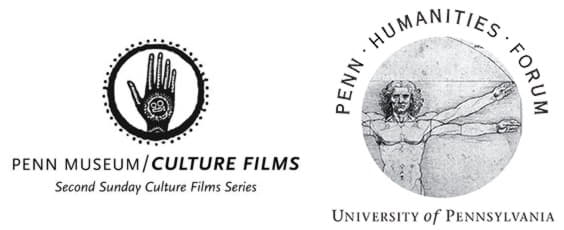Features Thought-Provoking Documentaries, Discussions, October through March

Our language and our culture are deeply intertwined, so much so that some may say language is culture. How is that? This fall through spring, the Penn Museum’s Second Sunday Culture Film Series explores aspects of translation, accents, culture, and language through a range of documentaries that connect with extraordinary people and diverse locales around the world: from a Chinese-owned diner in the Canadian Plains, to hip hop culture in New Zealand, to Korean children at a school for the deaf in California. The Language is Culture series is co-sponsored by the 2016-2017 Penn Humanities Forum on Translation.
Language is Culture films run the second Sunday of each month, October through March (no January program). Each film or set of short films is introduced by faculty from the University of Pennsylvania and other universities, and followed by open discussion. All programs, free with Penn Museum admission donation, begin at 2:00 pm in the Museum’s Rainey Auditorium.
This year’s lineup:
October 9, 2016: Chinese American Culture Program
Chinese Restaurants: Canadian Plains (2005)—Dir. Cheuk Kwan (27 min, Canada)
The charming and gregarious Jim Kook became fluent in the language and culture of the plains of Canada, in the process making himself essential to the life of the town of Outlook, Saskatchewan. Filmmaker Cheuk Kwan is in attendance at this program, introduced by Dr. Josephine Park, English/Asian American Studies, University of Pennsylvania.
November 13: Quechua Language Program
Quechua: The Fading Inca Language (2010)—Dir. Gabina Funegra (19 min, Peru); and newly translated short Quechua dramas from YouTube
This series of shorts explores the recent resurgence of the Quechua language. One of the largest language groups in Latin America, Quechua, suppressed and maligned for hundreds of years, is now enjoying a revival of esteem and usage thanks to specific governmental policies and the enthusiasm of students from as far as Paris and Tokyo. Americo Mendoza-Mori, Quechua language professor at Penn, introduces the program.
December 11: Accents & Idioms*, or "Separated by a Common Language" Program
The Deadly Ponies Gang (2013)—Dir. Zoe McIntosh (63 min, New Zealand)
Hip hop culture has been claimed around the world and translated into many hyper-local contexts. In this hilarious “documentary,” Clint goes on a mission to get some teeth for his mate Wayne, with the help of rapper The Rhymestone Cowboy and others in rural New Zealand. [*This show is not recommended for young children due to language and brief nudity.] Introduced and discussed by Dr. Bethany Wiggin, Instructor of German language, Penn Environmental Humanities Director, and Topic Director of the Penn Humanities Forum Translation theme for this year.
February 12, 2017: Deaf Culture Program
Making Noise in Silence (2015)—Dir. Mina T. Son (19 min, United States); and excerpts from other short films on deaf culture and language
What are hearing people missing by not being able to sign with deaf people? What parts of deaf culture are hard to translate? What is an accent in American Sign Language? These and many other questions will be addressed in this program of short films. Filmmaker Mina Son attends the program, which is introduced by Jami Fisher, American Sign Language program coordinator in Linguistics, University of Pennsylvania. ASL interpreters will be on hand.
March 12: Irish Program and Series Finale
In the Name of the Fada (2008)—Dir. Patrick Comer (40 min, Ireland)
An Irish American comedian makes it his mission to learn Irish/Gaelic language well enough to crack people up, in this episodic piece from Irish National TV. A series closing reception open to all features an Irish tea party. Dr. Joseph Lennon, Villanova University, and Vicki Brady, Irish Fulbright scholar, lead discussions after the film.
Presenting co-sponsors of the Second Sunday Culture Film Series

The Second Sunday Culture Film Series is also made possible with additional support from Penn Cinema Studies, Penn Latin American and Latino Studies, Penn Asian American Studies, The Department of English at Penn, Natives at Penn, The Penn Language Center, and the Penn ASL program.
The Penn Museum (the University of Pennsylvania Museum of Archaeology and Anthropology) is dedicated to the study and understanding of human history and diversity. Founded in 1887, the Museum has sent more than 300 archaeological and anthropological expeditions to all the inhabited continents of the world. With an active exhibition schedule and educational programming for children and adults, the Museum offers the public an opportunity to share in the ongoing discovery of humankind's collective heritage.
The Penn Museum is located at 3260 South Street, Philadelphia, PA 19104 (on Penn's campus, across from Franklin Field). Public transportation to the Museum is available via SEPTA's Regional Rail Line at University City Station; the Market-Frankford Subway Line at 34th Street Station; trolley routes 11, 13, 34, and 36; and bus routes 21, 30, 40, and 42. Museum hours are Tuesday through Sunday, 10:00 am to 5:00 pm, and first Wednesdays of each month until 8:00 pm, with P.M. @ PENN MUSEUM evening programs offered. Closed Mondays and holidays. Admission donation is $15 for adults; $13 for senior citizens (65 and above); free for U.S. Military; $10 for children and full-time students with ID; free to Members, PennCard holders, and children 5 and younger.
Hot and cold meals and light refreshments are offered to visitors with or without Museum admission in The Pepper Mill Café; the Museum Shop offers a wide selection of gifts, books, games, clothing and jewelry. Penn Museum can be found on the web at www.penn.museum. For general information call 215.898.4000. For group tour information call 215.746.8183.









